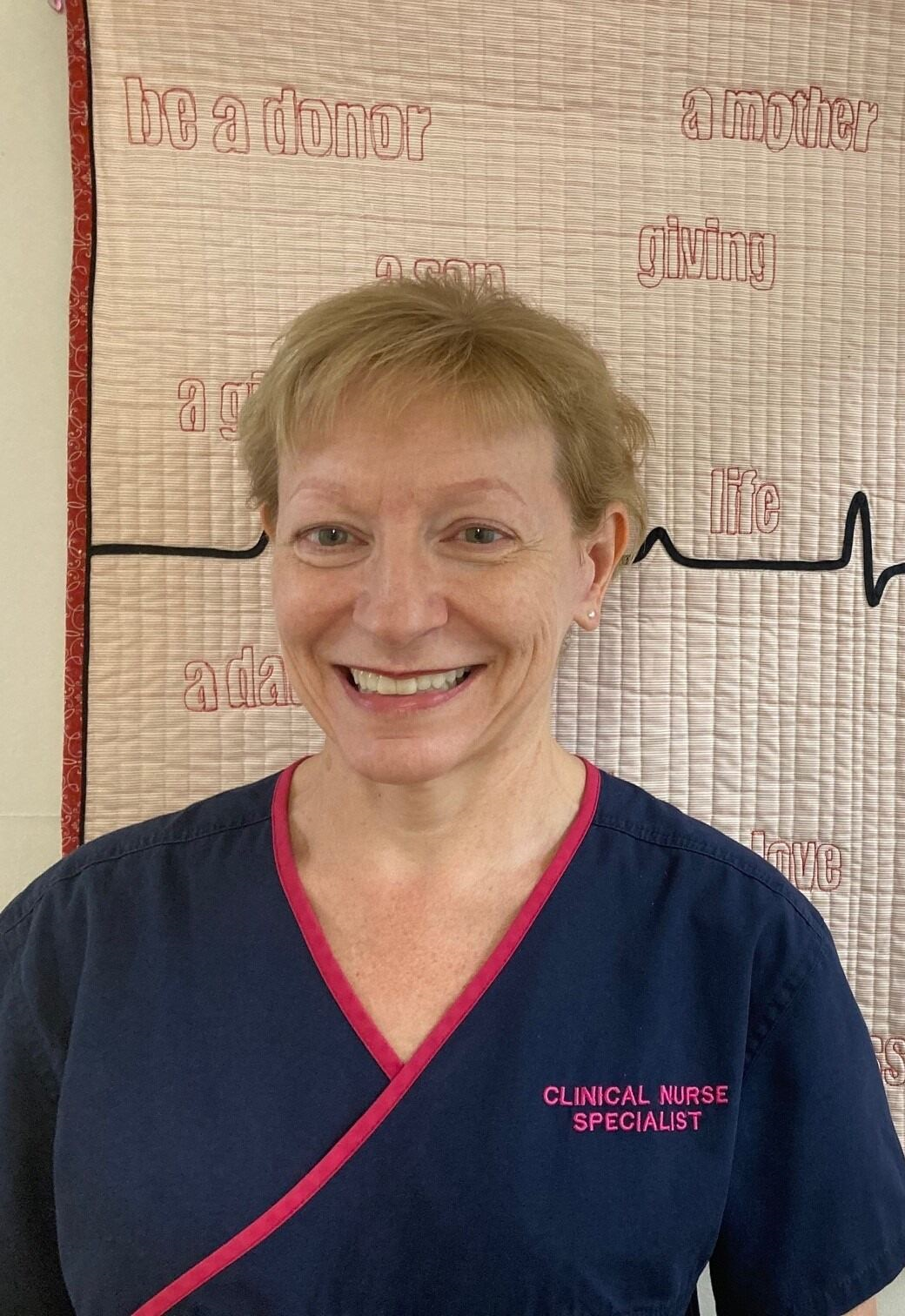The Australian government is now operating in accordance with the Guidance on Caretaker Conventions, pending the outcome of the 2025 federal election.
Linda Thomas - Clinical Nurse Specialist

As told by Linda Thomas, DonateLife Western Australia
As a nurse, I never thought that one of my career highlights would involve clinical technology. Yet one of my proudest accomplishments has been introducing and implementing an automatic notification system for tissue donation across WA’s St John of God Hospitals in 2014. When I look back at my 17 years working with DonateLife, it’s amazing to be able to say that I’ve left that kind of mark on the sector.
As an organ and tissue donation Clinical Nurse Specialist in Western Australia, I balance my time between Perth Children's Hospital and the St John of God Hospitals in Subiaco, Murdoch and Midland.
For a long time, automatic notification systems have been used in WA public hospitals to notify the DonateLife team of potential eye and other tissue donation opportunities. I noticed this gap in private hospitals and decided to implement a similar system for St John of God. The notification system has improved routine assessments for tissue donation and increased the number of families offered donation as part of end-of-life care for their loved ones.
Every day for me at work varies. There’s a clinical side to my job, where I meet with the families of potential donors, audit hospital deaths, and be available to support the 24/7 on-call team. I am also involved in policy and logistics within the hospitals, making sure that everything is in place for organ and tissue donation to occur smoothly.
One of the most vital parts of my role is providing organ and tissue donation education across hospitals in WA. Through these programs, I run training sessions with medical, nursing and allied health staff. I provide information about the importance of assessing hospital patients with planned end-of-life care for donation, and how to refer potential donors to DonateLife. Very importantly, I also educate staff about taking care of donors and their families.
The education sessions include sharing real stories from WA hospitals. I’ll often invite families of donors along to share their experience and the solace that donation can provide at such a terrible time. I’m always in awe of the families who choose to come back and spread awareness to potentially save more lives.
Many years ago, I encountered my first infant death in a hospital setting. The child’s parents went on to consent to donation, and I ended up forming a special bond with them over the years.
I invited those parents to the Perth Children's Hospital for a hospital-wide education session for DonateLife Week. The way they spoke with staff about the time following the death of their child in a traumatic accident had such an impact on me. It highlighted the duty that I have in my role to speak to families about their options to donate, even at the worst possible time of their lives. The parents spoke about how their choice to donate and help other children offered just a little bit of hope, and a bit of positivity in such tragic circumstances. This was very special to me.
Some doctors and nurses still assume that you shouldn’t ask about donation in those devastating moments, because the family is too upset. However in reality donation is such a gift for both donor families and recipients.
Starting conversations with families about the decision to register as an organ and tissue donor is something I‘ve always felt adamant about. I know firsthand that families feel far more comfortable deciding on donation when they know what their loved one would have wanted. Whether that's a yes or a no.
These families are so amazing thinking about donation at such a terrible time. It really is a privilege to work with them.
Inspired by Linda's story?
